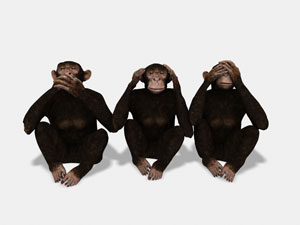 This blind collusion and lack of the assumption of responsibility are rooted in a concept known as “System Justification Theory,” which refers to a social psychological propensity to support the status quo, often contrary to logic.[1]
This blind collusion and lack of the assumption of responsibility are rooted in a concept known as “System Justification Theory,” which refers to a social psychological propensity to support the status quo, often contrary to logic.[1]
This is a fascinating dynamic. You have a large number of members of an industry that not only look the other way, but endorse this unwritten code of collusion.
In any other context, they would likely disparage theft and deception, and many may not actually be personally involved in such practices, or perhaps at least not on a regular basis. Still, there is this collective sense of subconscious acceptance, akin to the police officer that would not inform on a colleague (“the blue wall of silence”), or even a taxpayer that cheats regularly on his filings.
The corruption has become systemic, as to now be institutionalized, a way of doing business, a fact of life. They justify their actions and dismiss critics who do not understand the culture, who do not know that “this is how we do things here.”
There is a thread of ego-justification here that is fed by the group dynamic, not guilt by association, but the lack of guilt by association.
System Justification Theory differs from the status quo bias in that it is predominately motivational rather than cognitive. Generally, the status quo bias refers to a tendency to prefer the default or established option when making choices.
In contrast, System Justification Theory posits that people need and want to see prevailing social systems as fair and just. The motivational component of system justification means that its effects are exacerbated when people are under psychological threat, or when they feel their outcomes are especially dependent on the system that is being justified.
This collective justification underscores the importance of individualism as an essential tenet of the Wall Street Psychologist’s Gyroscope, but within the complexity of the corporate structure. The important bottom-line is that you must be true to yourself.
[1] Jost, John T., and Hunyady, Orsolya. “The Psychology of System Justification and the Palliative Function of Ideology”. European Review of Social Psychology. 13 (2002): 111-153.